
When are winter tyres compulsory in Germany?
3 December, 2019 | Update: 09/10/2024
Are you driving to Germany this winter? Don’t forget to check your tyres! From October 2024, a new regulation will be in force: only winter tyres with the Alpine symbol are permitted. This symbol – a mountain with a snowflake – indicates that your tyres are approved for winter conditions. Do you still have tyres with the old M+S marking? Unfortunately, they no longer meet the standard. If you continue to drive on them, you not only risk your safety but also a fine. So, good preparation is not only smart but also mandatory!
Table of contents
-
- Summary
- When are winter tyres mandatory in Germany?
- Winter tyre tread in Germany
- Winter tyres with Alpine symbol mandatory in Germany
- Old winter tyres from before 2018
- Can you drive with all-season tyres in Germany in winter?
- Winter tyres for caravans and motorhomes since July 2020
- Fines and liability for incorrect or missing winter tyres
- Equip your winter tyres with the right winter gear
- Are snow chains mandatory in Germany?
- What must you carry in the car in Germany?
- Campsites in Germany
- Regulations in other countries
Summary
From October 2024, winter tyres with the Alpine symbol are mandatory in Germany. Until September 2024, tyres with an M+S marking could still be used, but since then, you risk a fine if you don’t have the correct tyres in wintry conditions. Under wintry conditions, such as snow or icy roads, you must use tyres with the Alpine symbol. This also applies to all-season tyres.
Motorhomes and commercial vehicles heavier than 3,500 kg must have winter tyres on both the drive axle and the steering axle since 2020. Failure to comply with the regulations can lead to fines, and in the event of an accident, you will always be held (partially) liable.
When are winter tyres mandatory in Germany?
There is no specific period during which winter tyres are mandatory in Germany, but it depends on the conditions. But what exactly do the Germans define as wintry conditions? This is defined as: black ice, snow, slush, and frost or ice formation. Therefore, it is not linked to a fixed period.
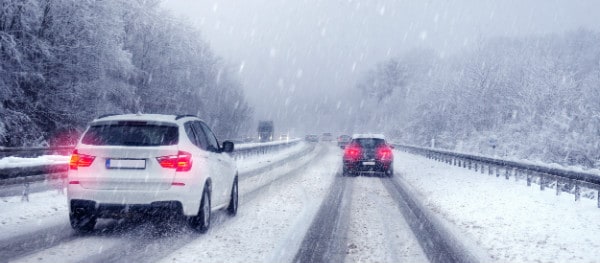
German law officially does not speak of winter tyres, but of tyres with winter properties. Only true winter tyres or all-season tyres with the Alpine symbol (snowflake symbol) comply with the German regulations.
Winter tyre tread in Germany
The official German definition of ‘a tyre with winter properties’ is a winter or all-season tyre that displays the Alpine symbol below. In addition, it is legally required that the tyre has a minimum tread depth of 1.6 millimetres. For safety, a minimum of 4 millimetres is recommended in Germany – just like in Austria.
Winter tyres with Alpine symbol mandatory in Germany
Tyres with just an M+S coding are no longer sufficient as winter tyres in Germany from October 2024. Manufacturers can determine for themselves whether to mark their tyres with the letters M (mud) and S (snow). These terms therefore say nothing about the tyre’s performance in winter conditions. In fact, even summer tyres can and may have these symbols.
The Alpine symbol provides more certainty. To use this symbol, the winter tyre must meet minimum requirements for grip in winter conditions (snow grip index). Therefore, winter tyres in Germany must always have this symbol.
Old winter tyres from before 2018
Do you still have winter tyres or all-season tyres with an M+S code purchased before 2018? These are no longer compliant from 30 September 2024. This means that you risk a fine with these tyres.
You can easily check the production date of the tyre yourself with the DOT code that is on your tyres. The four digits of this code indicate the production date. For example, the numbers 2416 mean the tyre was produced in the 24th week of 2016. Tyres ending in 18 must therefore also have the Alpine symbol to be officially used as winter tyres.
All winter or all-season tyres produced after 1 January 2018 must have an Alpine symbol, or you may still be held liable for any damage in an accident. So, pay close attention to the production date and symbols on the tyres when buying ‘new’ tyres.
Can you drive with all-season tyres in Germany in winter?
If all-season tyres have the Alpine symbol (snowflake), they are considered winter tyres. In this case, you can safely drive on wintry roads in Germany. How do you recognise them? Check the sidewall of your tyre. If it says A/S, you have all-season tyres. But be aware: only those with the snowflake symbol comply with the German requirements for winter tyres.
Winter tyres for caravans and motorhomes since July 2020
Since trailers and caravans are towed and not self-propelled, they fall outside this regulation. The towing vehicle, and therefore your motorhome, must of course comply with the new regulations.
And since July 2020, there is even one more rule that motorhome owners in particular need to be aware of. Commercial vehicles and buses over 3,500 kg – and therefore also motorhomes – must be equipped with winter tyres on both the driven axles and the steering axle in wintry conditions. Before that, winter tyres were only required on the driven axles. So, pay extra attention when setting off with your motorhome!

Fines and liability for incorrect or missing winter tyres
If, during a check, it is found that your winter tyres do not meet the new requirements, the fine is €60. If you also obstruct other traffic, the fine increases to €80. But more importantly, if you are involved in a traffic accident, even if it is not your fault, you will be held (partly) liable.
This applies not only if you are on a ski holiday in Sauerland or Bavaria, but also for a trip to a winter campsite, such as just across the border in Lower Saxony.
Driving in Germany without proper winter tyres will always result in partial liability in the event of an accident. This applies to both the driver and the owner of the vehicle. So, make sure your tyres are suited to the weather conditions. With the right all-season tyres, you’ll drive safely all year round.
Equip your winter tyres with the right winter gear
To comply with all the regulations, your car must also be equipped for wintry conditions. German law requires your car to be equipped according to the weather conditions.
In addition to the correct winter tyres, these are the essential items during winter in Germany:
- Plenty of windscreen washer fluid (with antifreeze)
- Properly functioning windscreen wipers
- Good visibility in all directions is mandatory, so make sure all windows are free of snow and ice
- A scraper and possibly a brush are handy to clean the windows and lights
- Covering the windscreen with a protective foil may come in handy
- Antifreeze for the coolant can prevent the engine from being damaged in low temperatures
Are snow chains mandatory in Germany?
On some (mountain) roads, it may be mandatory to use snow chains, so make sure you have them in the car.
What must you carry in the car in Germany?
-
- Warning triangle
- Safety vest
- First aid kit
- If you are driving a combination of vehicles (for example, a car with a caravan), it is also mandatory to carry two wheel chocks in the car.
- A portable yellow flashing light is also recommended, but is not mandatory for vehicles without German plates.
Winter campsites in Germany
These campsites are close to ski areas.
Regulations in other countries
Not all European countries have the same winter tyre regulations. That’s why Bianca has looked up the winter tyre rules in France and Italy. Also good to know: these are the regulations for environmental stickers in Germany.




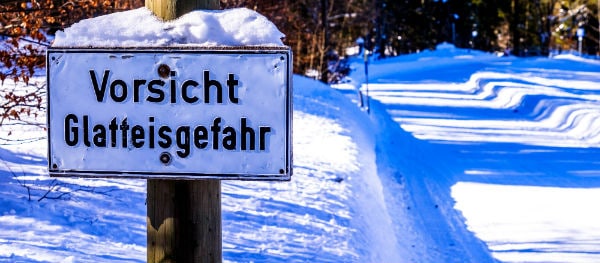
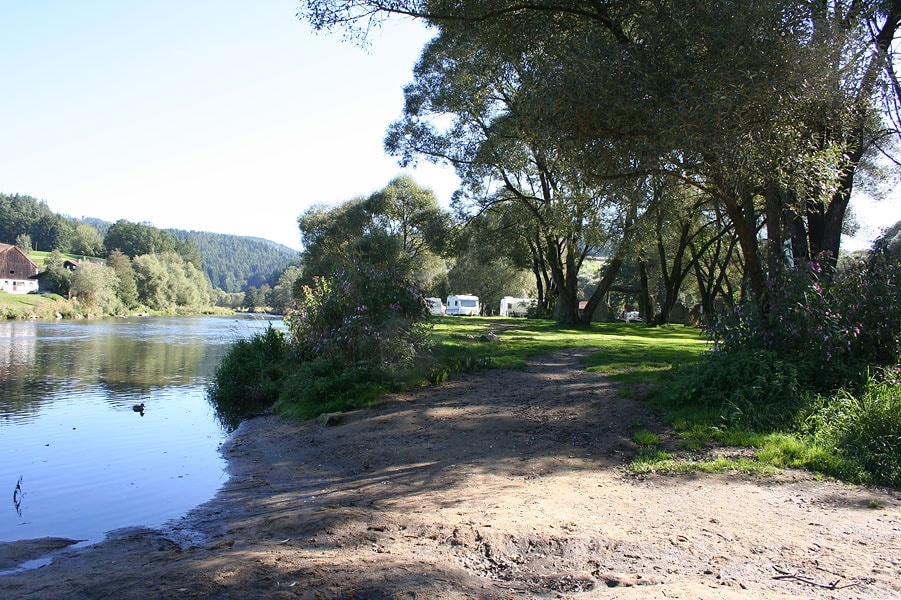
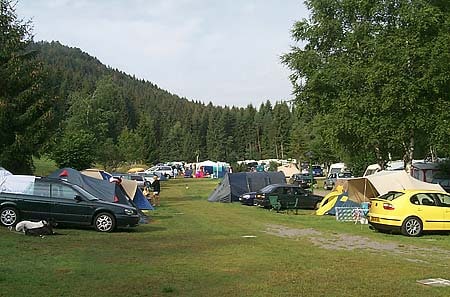
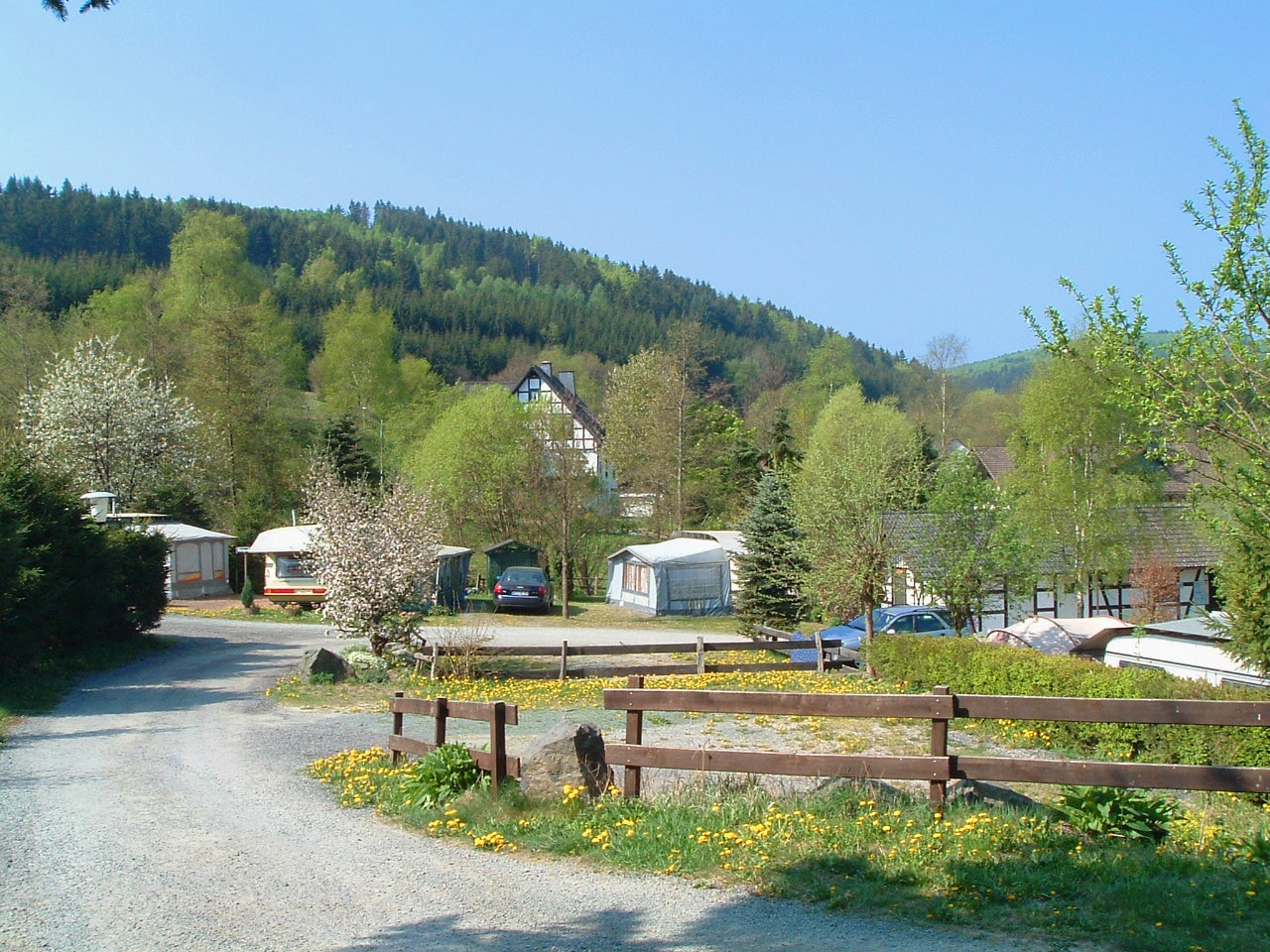
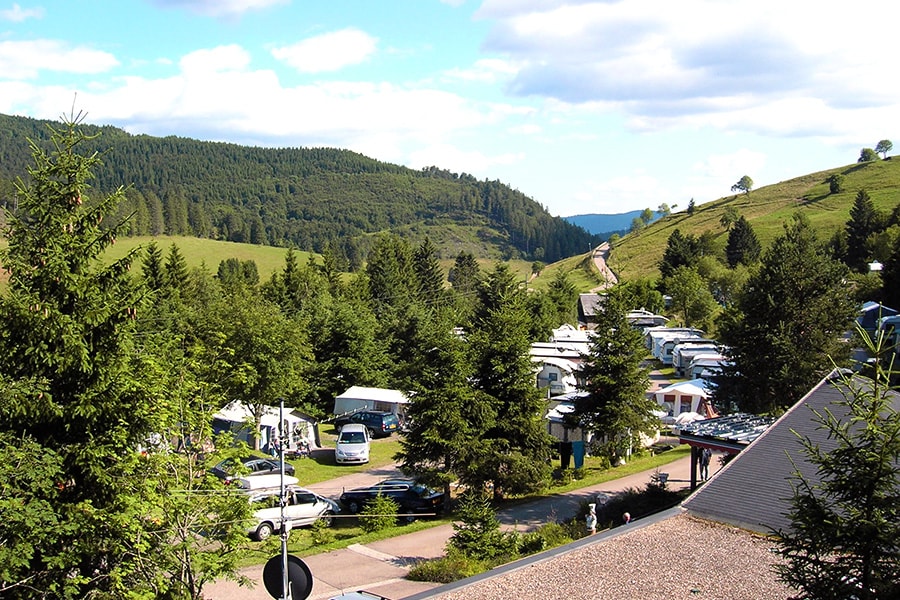
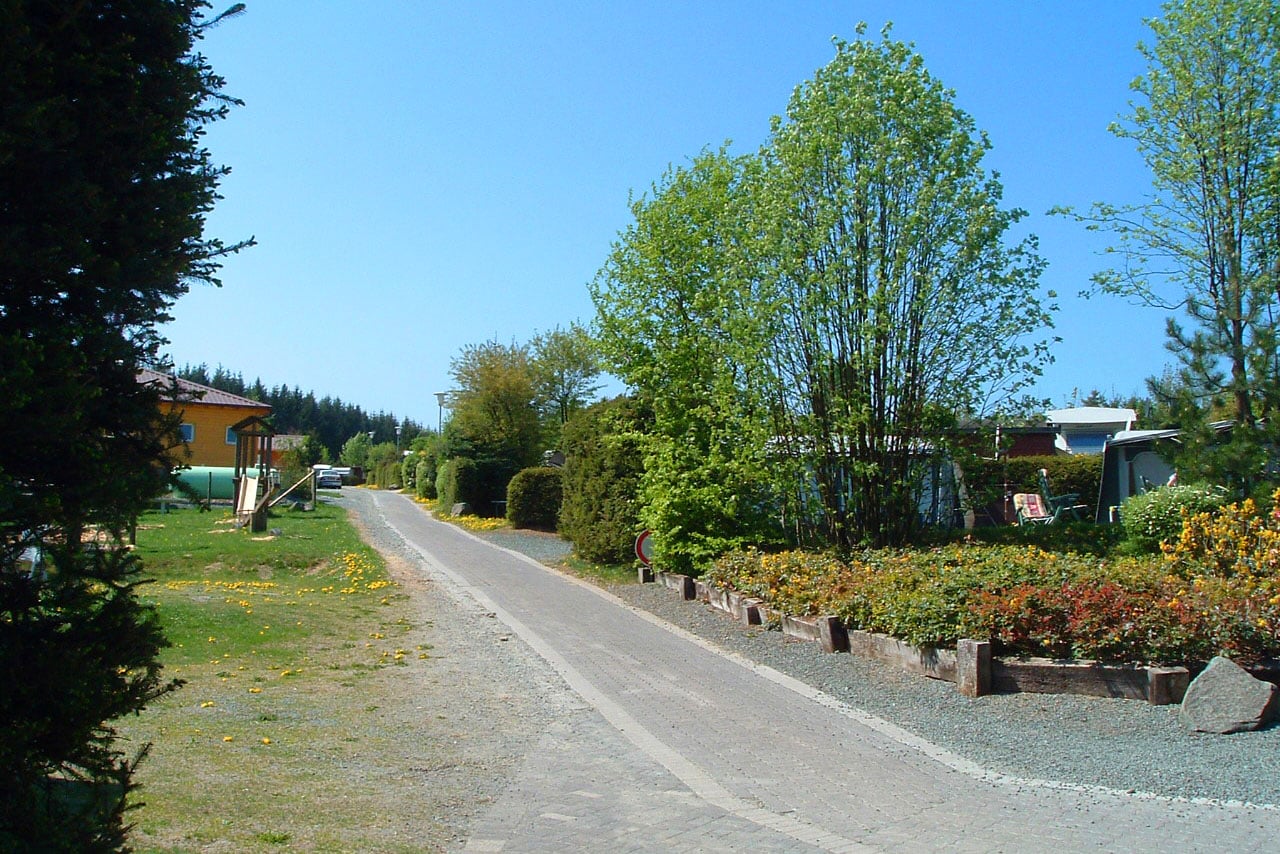
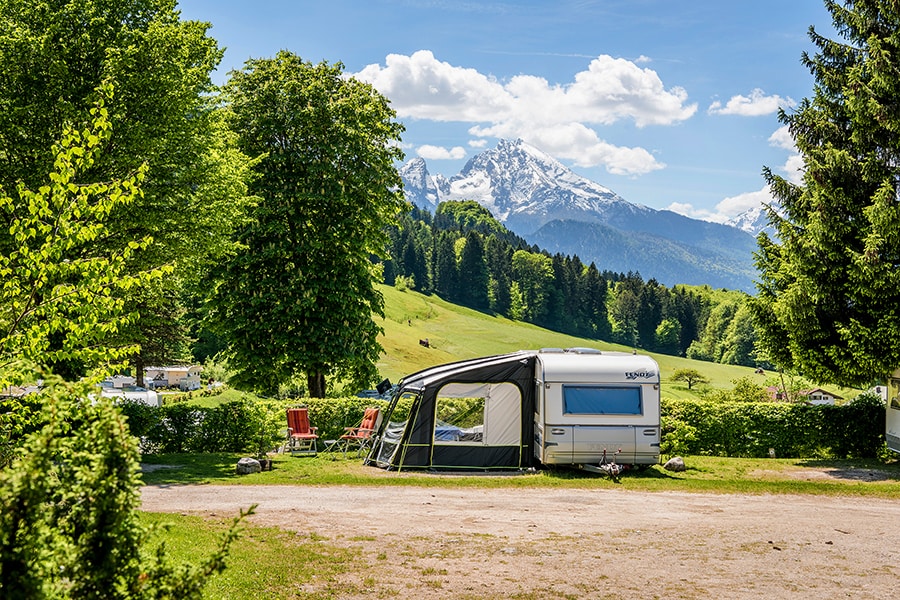








27 Comments
Sweden no longer allows just the three peak mountain symbol for Winter tyres, the three peak mountain symbol must now also contain the snowflake. Winter tyres are compulsory from December 1st until May 1st, however if it is a long Winter that goes past May 1st the Winter tyres must still be used.
I use all weather tyres and check condition (also age)
They are maybe not as good as winter tyres, but fulfil requirements.
As I understand the rules
Although there is not necessarily a defined period, if authorities do not consider your tyres are adequate you have a problem
Even in July
Hi may I ask you my son has a car with a transverse engine which means all the power is at the front of the car and the back is what we call a trailing wheels no power. In winter for tyres is it legal just to have winter or all weather tyres at the front and nothing on the back but just normal tyres ?
Hi Roland,
We have looked into that at several German websites. We are not completely sure about the official rules, but we would strongly advise to use winter tyres on all four wheels. Partly because we think this is mandatory but also because it will give the car more stability in winter circumstances.
Kind regards,
Marieke Krämer
The problem is that if you have good grip at the front and not such good grip at the back, when braking, especially downhill in snowy conditions, it could result in the rear of the car rapidly becoming the front. (swapping ends!) For that reason all 4 wheels should have, as far as possible the same level of grip. For the same reason snow chains when fitted should be on all 4 wheels (although I have read that putting them on the rear if you only have ones on a 4×4 is best and reduced the likelihgood of teh car spinning under braking even if it seems counter intuitive since the front wheels do the steering.
All 4 is the legal requirement if winter conditions
May I just say what a relief to discover a person that really understands what they are talking about over the internet. You actually realize how to bring an issue to light and make it important. More people have to read this and understand this side of your story. I was surprised that you are not more popular because you definitely have the gift.
Hello Bram,
In a normal car, is it a requirement to have 4 winter tires or just the 2 ones in the front axle? I’m going to Germany soon and I only have 2 in the front axle (required in Italy) Thank you very much
Hi,
Are winter tyres or snow chains mandatory in Spain during the winter?
TIA
Thank you so much for this useful advice. I’m driving to Denmark through Germany on Sunday, and have arranged for winter tyres to be fitted tomorrow. I knew they were a good idea but did not know it was mandatory. Thanks again, Nicholas
Hi I’m traveling in Germany for Christmas this December I don’t have winter tyres jus normal tyres I’m just visiting fo couple days jus need some advice thanks
Hello Artan,
Odds are that you’ll need winter tyres. The moment weather conditions are described as ‘wintery’, winter tyres are obligated, even if you are just staying in Germany for a few days. My advice is to make sure your tyres meet the German standards. If you get involved in an accident, even if it’s not your fault, the tyres will be more than worth it.
Kind regards,
Bram
We are visiting germany dec 2019 for one week do we gave to have winter tyres
Hello Geirge,
Odds are that you’ll need winter tyres. The moment weather conditions are described as ‘wintery’, winter tyres are obligated, even if you are just staying in Germany for a few days. My advice is to make sure your tyres meet the German standards. If you get involved in an accident, even if it’s not your fault, the tyres will be more than worth it.
Kind regards,
Bram
My question is where is the best place to buy my winter tires in Germany? I have no idea where to shop for them
Hello Michele,
You can buy decent winter tyres at almost every garage in Germany. Winter tyres are very normal in Germany, so most sizes are stocked. Makes sure you chose winter tyres which meet the criteria I mentioned in my article.
Kind regards,
Bram
Informative article but as it is posted on EuroCampings, I expected it to also have information as to regulatory requirements for winter tyres/snow chains on caravans.
Can I drive with normal summer tires in good condition during the winter time at the good days only? they dry days without snow on the road and when will be snow all over I will not move. I am trying to save money to change again and again tires.
Hi
By law Is there any age limit of winter tyres I can use in Germany?
Can I use 7-8 years old winter tyres?
We will driving from north of Sweden to Frankfurt Germany in dec. 2019 and have winter tyres with studs.
What are the rules if I am using studded tyres?
Is there any extra-tax that I have to pay?
Regards
HEllo!
Studded tyres are not allowed in Germany.
Hi, I am planning to drive to North Germany from 6th April 2019 to 14 aoril 2019 from Sweden.
In Sweden, we can put on summer tyres on 1st April onward . How is the law in Germany? Is my car with summer typres allowed to drive in Germany on 6th April onwards ?
Please help to reply
What if I drive in the winter season, but the road conditions are not icy (e.g: warm dry day, with no snow on roads)? can I drive with normal tyres?
Hello Amr,
In that case, winter tyres are not obligated and you can drive with your “normal” tyres.
Kind regards,
Bram
Hello.
We are driving thrugh Germany and have winter tyres with studs is that ok?
Many thanks for your answer.
Hello Per,
Thank you for your reaction. In Germanay, studded tires are not allowed as they could cause damage to the pavement. The only exception are routes via “Kleines Deutsches Eck“, in the southern of Germany.
Kind regards,
Bram
Nice article. That was so informative. We are also a Tyre care tips and guides blog.